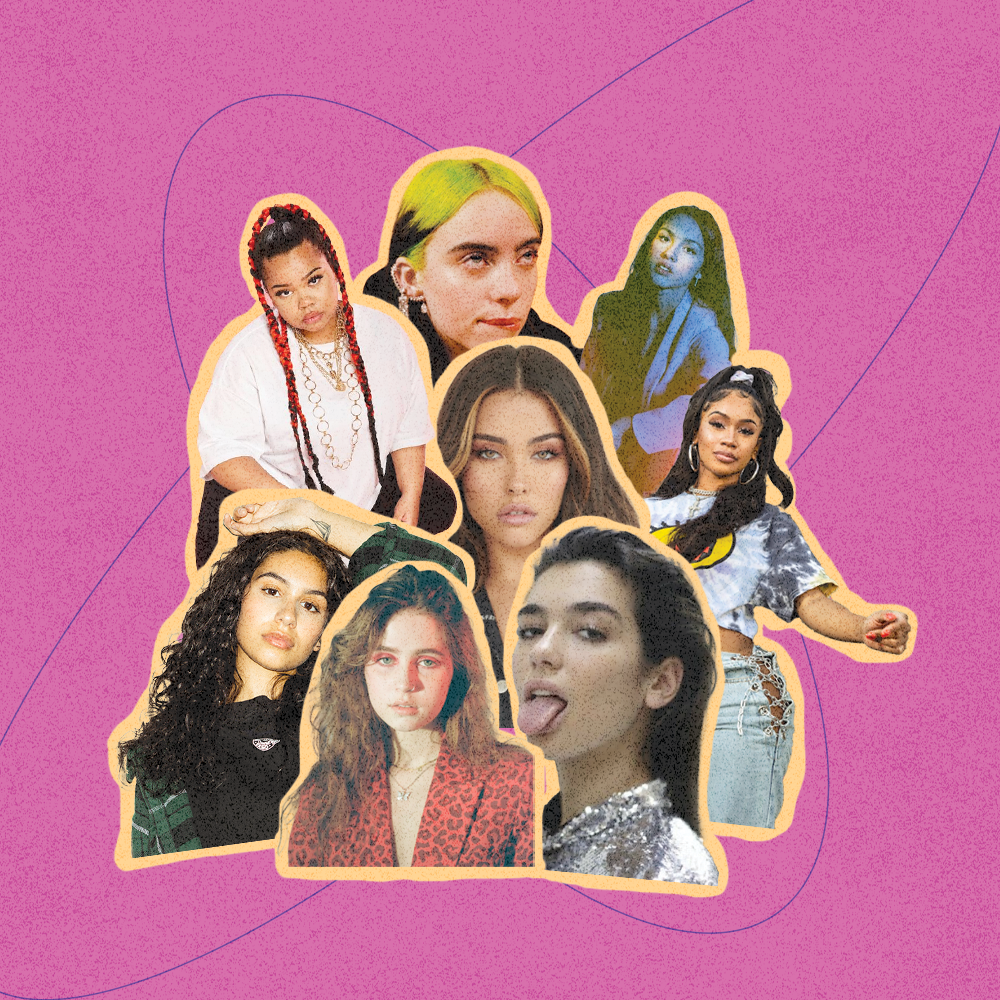Industry Plants - Another Form of Sexism in Music
collage by Zoë Gigis
If you’ve spent enough time deep-diving on the internet, you’re no stranger to the concept of an industry plant. Many artists who’ve managed to inconspicuously reach fame have been accused of being one, from Lana Del Rey to Billie Eilish to, more recently, Olivia Rodrigo.
For the less accustomed, industry plants are considered to be artists who’ve chartered acclaim through streams or radio play through the help of secret connections, whether it be famous relatives or ties to the music industry. The term “industry plant” like most musical conspiracy theories originated on online hip-hop forums in the 2010s. The genre is rife with accusations of industry plants, speculating that Kanye West, Drake and Juice Wrld were all giant pawns in labels’ game to control the music industry from the inside. In a video essay on Genius, A&R reps and rappers alike acknowledge that accusing people of being industry plants in the rap industry seems evident, as the whole genre is founded on the idea of being authentic and challenging the norms. To be a puppet being mastered by greedy labels would destroy their entire credibility and sense of individuality as an artist.
However, since then, the accusations have spiraled out into other genres like pop and created a whole new set of targets – young girls. The most infamous victim of the industry plant accusations is indie pop artist, Clairo. Her debut song, Pretty Girl, a low-fi bedroom produced tune quickly got to 29 million views on YouTube. Since then, she’s dominated Spotify playlists and helped pioneer a whole new generation of artists producing songs at home. However, the internet soon discovered that Clairo wasn’t as isolated from the music industry as they thought she was – Clairo’s father was a chair at the Grammy Foundation with strong ties to music publications such as Pitchfork and Billboard. Since then, her entire career has been justified through her title as an industry plant – from securing a record label to the rave reviews she got on her first album. Nevertheless, there’s also another clear indicator that helped Clairo’s trajectory skyrocket: the internet.
Clairo is definitely not the first artist to gain traction on the internet, but she appeared at a time where people heavily relied on Soundcloud and social media to find new artists. Fanbases, particularly online, are vital to help artists succeed. It’s how artists like Billie Eilish and Halsey through distinguished aesthetics and interactions on social media got to where they are today. In a tweet defending the claim that she was an industry plant, Halsey wrote: “YOU GUYS made what I am today by coming to shows and loving the music before I had even one second of radio time.” There’s no doubt that fans are just as vital as record labels in helping to spread music.
And now it’s even easier. Record labels and fans alike have noticed the importance of digital platforms like TikTok. With TikTok, artists can promote and hype up snippets of their music, and get them heard across the world without radio play or relying on their relevance on their charts. So, what about Olivia Rodrigo, the newest industry plant according to the internet. When “driver’s license” came out in January, it became the highest streaming song of the year, clogging TikTok FYPs and leading to the entire internet speculating about the 18 year old’s love life. Without a doubt, this success could only be accredited to her label right?
Well, not really. Olivia Rodrigo, as you might have read in the multitude of think pieces and conspiracy theories about her infamous love triangle, was already a star in “High School Musical: The Series” and had a massive following on TikTok prior to the song’s release. Of course, her label had some sway in promoting the song, as that is their job. But, reducing all the song’s success to assumptions that Olivia could not have done this on her own takes away all of Olivia’s agency as an artist.
Yes, there are plenty of horror stories in which labels manipulate artists in order to increase sales and many female artists might have had ties to the industry prior to signing their record deals. But, assuming that a young female artist is only successful because their label made them so is just another perpetuation of sexism in the music industry. There are plenty of male artists who have used their fame on TikTok to transition into music, jxdn and Lil Huddy are two current examples. However, their artistry is never put into question. By constantly accusing women of only reaching fame because of other people, we’re not only stripping away the talent that these women have but that of the fans who listen and support their music. It’s time to come to the realization that the reason “driver’s license” has become so popular, might just be because, well, it’s a good song.
